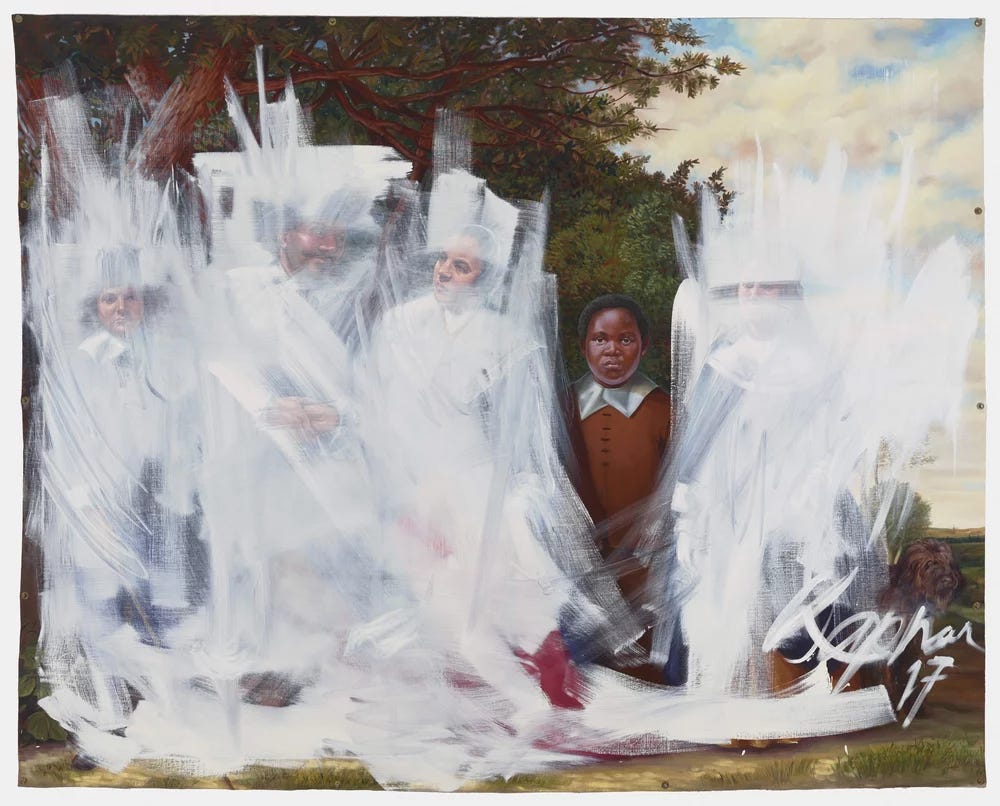The Default Mode of Alone
We're Choosing Solitude Without Realizing It
Welcome to Signed, A Friend, an occasional exploration of friendship, loneliness, and what holds us together.
Quick Notes
Last week, New York subway riders became inadvertent participants in a referendum on AI friendship. Friend.com, a startup selling an AI companion necklace, blanketed the subway system with a $1 million ad campaign of minimalist black-and-white posters promoting their wearable “friend.”
The response was swift and unambiguous: graffiti appeared on nearly every ad. “AI trash.” “Surveillance capitalism.” “Get real friends.” “Stop profiting off of loneliness.”
One tag read simply: “AI doesn’t care if you live or die.”
What struck me most wasn’t just the vandalism… it was the visceral rejection it represented. Here’s a product explicitly designed to address loneliness, backed by serious venture capital, and the gut response from actual lonely people was: Not like this.
It feels like something important is being said here. We’re lonely enough that a company can raise millions to sell us AI friendship. But we’re not so far gone that we can’t recognize the dystopia in that solution. At least not yet.
Going Deeper
I’ve been digging into the data on adult friendship lately, and something keeps nagging at me. Yes, the numbers are stark: 12% of U.S. adults now report having no close friends, and only 4% have ten or more, compared to nearly half in 1990. And yes, we can point to obvious culprits: suburban sprawl, economic pressures, the gig economy.
But the more I read, the more I think we’re missing something deeper. This isn’t just happening to us. It’s something we’re choosing, often without realizing it.
The Small Shifts That Add Up
The trends feel subtle at first, but they paint a revealing picture of how we’re spending our time:
We’re defaulting to solitude. Solo dining is up. We’re comfortable alone in ways previous generations weren’t. There’s nothing inherently wrong with this, until you realize solitude has shifted from occasional preference to default mode.
Work has consumed everything. Americans average 1,799 hours per year at work versus just 260 hours for leisure. Seventy-seven percent work over 40 hours weekly. We’re not even taking our paid leave. Work isn’t just what we do, it’s become who we are.
Parenting has intensified to the point of isolation. The “intensive parenting” model prioritizes children’s achievement over adult connection. Socializing gets deprioritized because there’s always another activity, another edge to give your kid. Parents are exhausted, over-scheduled, and increasingly cut off from their own friendships.
The Institutions That Used to Hold Us Together
What strikes me most is how the structures that once facilitated friendship have quietly eroded:
Volunteering dropped from 30% in 2005 to 23% in 2021. Only 15% of Americans belong to neighborhood associations. Just 10% are in sports leagues.
These weren’t just activities—they were the scaffolding for adult friendship. Shared experiences, repeated interactions, common purpose. Without them, where do friendships even start?
What I’m Sitting With
Here’s what I keep coming back to: the friendship recession isn’t inevitable. It’s the result of a thousand small choices about what we prioritize. We’ve collectively decided, not through any grand declaration but through daily habits, that work matters more than connection, that optimizing our kids’ futures matters more than our own present, that efficiency matters more than community.
I’m not sure we meant to make these choices. But we’re living with the consequences.
The question I’m wrestling with now is whether we can choose differently. Not through some dramatic life overhaul, but by recognizing what’s been lost and deciding to make space for it again.
Worth Your Time
Survey Center on American Life - “The State of American Friendship” — The foundational May 2021 survey showing Americans report having fewer close friendships, talking to friends less often, and relying less on them for support
Ray Oldenburg - “The Great Good Place” (1989) — The book that coined “third places”
Steelcase Interview with Ray Oldenburg — Recent interview with the sociologist who identified the third place phenomenon




